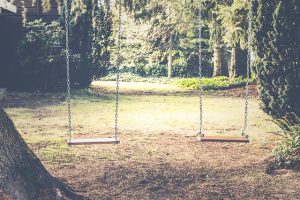Childhood sexual abuse takes many forms. For this reason, it is sometimes hard to identify. In 1992, Kathleen Ratican described childhood sexual abuse as follows: “Any sexual act, overt or covert, between a child and an adult (or older child, where the younger child’s participation is obtained through seduction or coercion).” Most sexual abuse occurs in childhood, with incest being the top form of abuse. The damage this can do to children is incalculable, and will affect the rest of their lives. In the rest of this article, I will address some of the many effects of childhood sexual abuse.
What is Sexual Abuse?
We tend to think of sexual abuse as direct touching of a child, but there are other ways that a child can be abused. For example, being introduced to online pornography or taking videos or photographs of children is also abusive. Older siblings may ask the younger child to do something to him/herself while the older ones watch, or the child may be asked to observe others performing sexual acts. All of these situations and more have serious consequences to the victim.
 Because sexual abuse is usually perpetrated on the child-victim by their caretakers or family members who are supposed to love and protect them, it becomes especially difficult to trust people. It forces children to have knowledge and do things before they are developmentally ready. It’s not uncommon for a child to act out with others in the same way they have been assaulted. For example, a girl growing up with an incestuous father may become extremely promiscuous as a teen, because that is the way they feel loved. Their experience of dad makes them believe that this is how you know you are loved.
Because sexual abuse is usually perpetrated on the child-victim by their caretakers or family members who are supposed to love and protect them, it becomes especially difficult to trust people. It forces children to have knowledge and do things before they are developmentally ready. It’s not uncommon for a child to act out with others in the same way they have been assaulted. For example, a girl growing up with an incestuous father may become extremely promiscuous as a teen, because that is the way they feel loved. Their experience of dad makes them believe that this is how you know you are loved.
Serious Effects of Childhood Sexual Abuse
Childhood sexual abuse takes its toll on the victim in many ways – depression, anxiety, eating disorders, dysfunctional relationships, sexual problems, shame, and guilt are among the effects. Often victims feel suicidal and “less than” or different from other people. They often experience sleep problems, and many have addictions to substances and sex as a way of dealing with their pain.
Following are a few of the more subtle, but serious, effects of childhood sexual abuse:
 One of the most common symptoms survivors have is shame. Although they were forced into things that took away their control and left them with no choice, they feel ashamed and guilty. Somehow it becomes their fault that these things were perpetrated on them. It’s especially difficult when the abuse is perpetrated by someone they trust – father, mother, beloved uncle or grandparent. They are left with the belief that is their fault that this is happening to them.
One of the most common symptoms survivors have is shame. Although they were forced into things that took away their control and left them with no choice, they feel ashamed and guilty. Somehow it becomes their fault that these things were perpetrated on them. It’s especially difficult when the abuse is perpetrated by someone they trust – father, mother, beloved uncle or grandparent. They are left with the belief that is their fault that this is happening to them.
- Stress and anxiety can follow the child into adulthood. Very much like post-traumatic stress disorder (PTSD) in veterans, an adult can experience similar reactions related to the abuse. Phobias, severe anxiety, and depression are quite common effects of childhood sexual abuse.
- In some cases, survivors learned to dissociate from the abuse. If it’s severe enough and starts early enough, the child splits into parts as protection. As adults, they may continue to use dissociation as a coping method when things get too stressful or scary. Denial and repression is common. Dissociating from the pain served a purpose when they were young, but as adults, it interferes with their quality of life.
 Sexual difficulties are not uncommon among survivors. Fear of intimacy, sexual anorexia (total disgust and fear of anything sexual), avoidance, or engaging in inappropriate sexual behavior are common. Unfortunately, it’s not uncommon for a victim to grow up and become a perpetrator.
Sexual difficulties are not uncommon among survivors. Fear of intimacy, sexual anorexia (total disgust and fear of anything sexual), avoidance, or engaging in inappropriate sexual behavior are common. Unfortunately, it’s not uncommon for a victim to grow up and become a perpetrator.
- Fear of intimacy is a common symptom of someone who has experienced sexual abuse in childhood. This can include the inability to establish healthy boundaries, feeling socially unacceptable, feeling weird when in the company of others, and getting involved in abusive relationships. For example, knowing what happened to you as a child was not what others experienced can make you feel different or out of place.
Studies show that men who experienced sexual abuse as children may experience erectile dysfunction and low sex desire along with premature ejaculation (of course, not all men experiencing these symptoms have been abused, but it is common among those who have experienced sexual abuse). Women tend to have difficulty with becoming aroused during sex. Because of sexual abuse, relationships often suffer – these children as adults do not know how to form healthy relationships and have difficulty establishing healthy boundaries. They often find themselves in abusive relationships. More extreme cases can result in several disorders that make it nearly impossible to have healthy relationships.
Help for the Sexual Abuse Survivor
 If you are a sexual abuse survivor, know that there is help for you. EMDR therapy is a wonderful and powerful therapy for healing those memories of abuse and replacing the lies you believe about yourself with healthy beliefs and the ability to begin living the life you are entitled to. As a Christian counselor and an EMDR therapist, I can help you process your trauma so that you can have the quality of life and relationships you have always wanted.
If you are a sexual abuse survivor, know that there is help for you. EMDR therapy is a wonderful and powerful therapy for healing those memories of abuse and replacing the lies you believe about yourself with healthy beliefs and the ability to begin living the life you are entitled to. As a Christian counselor and an EMDR therapist, I can help you process your trauma so that you can have the quality of life and relationships you have always wanted.
“Playing at the beach,” courtesy of unsplash.com, pixabay.com, CC0 Public Domain License; “Sunset,” courtesy of Tama66, pixabay.com, CC0 Public Domain License; “Backyard,” courtesy of unsplash.com, pixabay.com, CC0 Public Domain License; “Serenity,” courtesy of tpsdave, pixabay.com, CC0 Public Domain License


